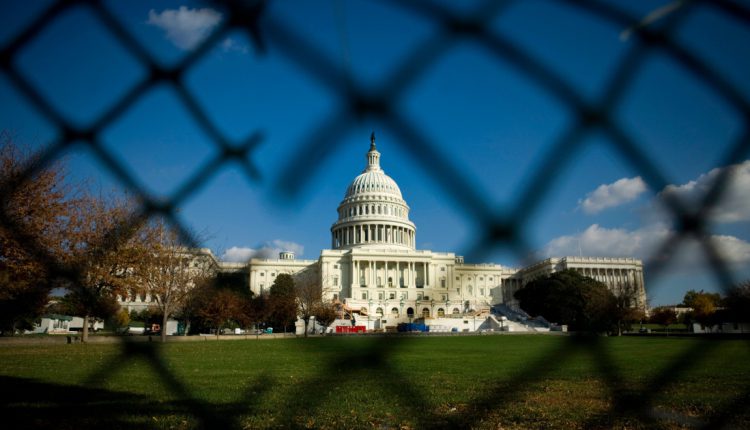
A bipartisan, bicameral agreement to overhaul Capitol Hill’s oft-criticized workplace misconduct device is unlikely so you can get connected to a must-pass government spending bill now, depending on multiple sources tracking the problem.
The sudden transfer of the fate on the Hill harassment measure, which negotiators were closing in on even as a week ago, jeopardizes its possibilities of getting signed into law by President Mr . trump.
Story Continued Below
Lawmakers and aides who shepherded your house version of the check to passage trapped on video tape had eyed legislation keeping the us govenment funded for the reason that best opportunity to get Congress’ own rules reformed ahead of the midterm elections.
But when using the spending bill hours from public release plus a Friday deadline to avert a government shutdown, aides upon sides of the Capitol were anticipating that this overhaul within the Hill’s policies for deterring and punishing workplace harassment would take a backseat.
Sen. Kirsten Gillibrand (D-N.Y.), whose sweeping rewrite of Hill harassment rules counts 30 Senate co-sponsors, said she was "appalled" that leadership in the chambers wouldn’t address the condition within the spending bill.
"It begs the issue: Who will be they wanting to protect?" Gillibrand said within a statement. "I will not think about any legitimate reason to get rid of this language except for to safeguard men and women Congress over taxpayers and congressional employees."
Don Stewart, spokesman for Senate Majority Leader Mitch McConnell (R-Ky.), disputed Gillibrand’s contention that factors of her harassment legislation were on track for getting coupled to the spending bill.
"The costa rica government funding bill continues to be developed, well, i haven’t any update for the final bill," Stewart said by email. "And although this important issue being discussed, never was language from Sen. Gillibrand’s bill adopted into the legislation and/or stripped."
The property recently approved by voice vote two measures designed to overhaul a congressional workplace misconduct system that lawmakers in the parties have excoriated as unfairly burdensome for victims. Among the two pieces of legislation is really a resolution meant to take effect immediately by changing Your policies, as the other House-passed proposal requires Senate passage and Trump’s signature.
Almost all the significant factors of the harassment reform plan, the merchandise of months of bipartisan talks, is protected within the House-passed bill that this Senate has yet to do something on – including a requirement that lawmakers personally finance misconduct claims if they’re found personally liable.
Mere weeks ago, Congress was gripped by sexual harassment scandals that ended the careers of the half-dozen lawmakers both in parties, whether through resignation or retirement. But government entities funding deadline days away, the prospects from a last-minute reform deal are stalling.
House Democrats are blaming their Senate colleagues for any eleventh-hour change, saying a push by Senate Democrats to weaken language associated with discrimination settlements is behind the standoff.
The property bill as passed would require lawmakers to cover both sexual harassment and discrimination settlements a lot poorer. But Senate Democrats prefer to nix the discrimination provisions, a “dramatic weakening on the bill,” in line with one House aide.
Key negotiators over the House side, including Minority Leader Nancy Pelosi (D-Calif.) and Rep. Jackie Speier (D-Calif.), are opposed to this type of change.
Another senior House source said the chamber’s leaders choose to add its already-passed harassment bill towards government spending legislation. "There’s currently a discussion in regards to what types of discrimination members might be answerable for, and we’d like to keep to the broader House language," the foundation added.
A senior Senate Democratic aide said the caucus didn’t have problem with keeping the stronger discrimination language within the package.
Other provisions from the harassment bill would take away the required counseling and mediation that victims now must undergo before pursuing your claim and mandate a public set of taxpayer funds utilized to pay money for misconduct settlements within the Hill.
Rachael Bade and Burgess Everett resulted in this report.

